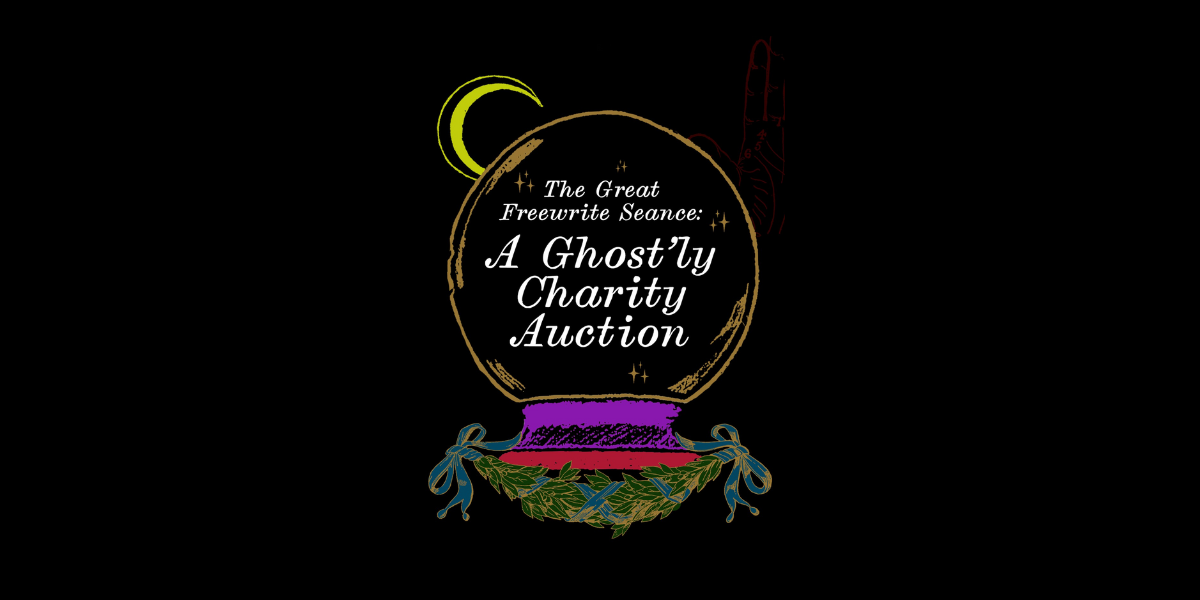
By Freewrite Advocate Eric Smith
Come November, my tenth book in the Young Adult space is coming out. With or Without You, a little rom-com about teen rivals and warring cheesesteak trucks.
Ten, though. Ten books.
If there’s one question I get more often than any others in my publishing and writing life, it’s a question surrounding time. How is it even possible to sit down and get the work done while also juggling, you know, important things like a day job, family, and whatever social life I may (or may not) have left.
Well. The answer is sometimes just not writing and doing something else.
A few years ago, I was at a book signing at The Fountain in Richmond, Virginia, one of my favorite indie bookstores. The brilliant Beth Revis was there, talking about her then latest novel, A World Without You. Someone asked her a similar question, about how she manages to write so much when there are so many other things she could be doing. Going out, hanging with friends, having an adventure.
And that’s when she said words that stuck with me.
When you have to choose between writing and adventure… choose the adventure.
This summer, I went to visit my wife’s family in Michigan. I decided not to bring my laptop (though, yes, I did bring my Freewrite, I am not perfect), and just relax. Recharge. Do as much fun reading as I could and play as many video games as the night (and my very active five-year-old) might allow. There were a few moments where my partner asked me, “would you rather stay in town, do some writing?” when the options were things like boating on Lake Michigan or taking our kiddo to his first baseball game.
Writer friends, always choose the adventure.
The way my kid’s eyes lit up on the water and over the field? That’s the stuff that will inspire, and honestly already has, endless hours of writing. I found myself waking up a little early some days of the vacation, and typing away with a cup of coffee, a smile on my face, the well refilled. I wasn’t forcing myself to sit down and do the work. I just wanted to, for a little bit. For me.
The adventure that Beth so beautifully talked about, the adventure is what refills that well. The adventure is what keeps us going. The adventure doesn’t have to be a racing boat across one of the Great Lakes. It can be simple. An evening out with friends. A rummage sale downtown. A new hike in another part of town. Whatever.
Because choosing the adventure with family and friends often leads to adventure in your prose. Picking that adventure makes me a better writer, a better friend, a better partner, a better parent.
Take that breath. Take that adventure.
You’ll find time for your words later.
--

Eric Smith is a literary agent, Young Adult author, and Freewrite Ambassador from Elizabeth, New Jersey. As an agent with P.S. Literary, he’s worked on New York Times bestselling and award-winning books.
His recent novels include the YALSA Best Books for Young Readers selection Don’t Read the Comments (Inkyard Press, 2020), You Can Go Your Own Way (Inkyard Press, 2021), the anthologies Battle of the Bands (Candlewick, 2021) and First-Year Orientation (Candlewick, 2023), both co-edited with award-winning author Lauren Gibaldi, and Jagged Little Pill: The Novel, which was written in collaboration with Alanis Morissette, Academy award-winner Diablo Cody, and Glen Ballard, and is an adaptation of the Grammy and Tony award winning musical.
His next book, With or Without You, a rom-com about two teens working in rival cheesesteak trucks, publishes this November with Inkyard Press. A lifelong lover of writing and books, he holds a Bachelor of Arts from Kean University in English, and a Master’s in English from Arcadia University, where he currently mentors MFA students. He lives in Philadelphia with his wife and son, and enjoys video games, pop punk, and crying over every movie.





























